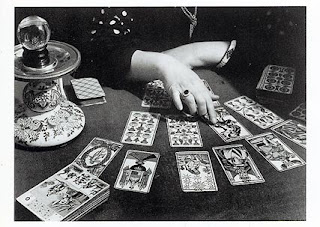In 1572 Augustus of Saxony imposed the penalty of burning for witchcraft of every kind, including simple fortune-telling.
For instance, fortune telling is a class B misdemeanor in the state of New York. Under New York State law, S 165.35:
A person is guilty of fortune telling when, for a fee or compensation which he directly or indirectly solicits or receives, he claims or pretends to tell fortunes, or holds himself out as being able, by claimed or pretended use of occult powers, to answer questions or give advice on personal matters or to exercise, influence or affect evil spirits or curses; except that this section does not apply to a person who engages in the aforedescribed conduct as part of a show or exhibition solely for the purpose of entertainment or amusement.
Law-makers who wrote this statute acknowledged that fortune-tellers do not restrict themselves to "a show or exhibition solely for the purpose of entertainment or amusement" and that people will continue to seek out fortune-tellers even though fortune-tellers operate in violation of the law.
The Kingdom of Saudi Arabia also bans the practice outright, considering fortune-telling to be sorcery and thus contrary to Islamic teaching and jurisprudence. It has been punishable by death.

